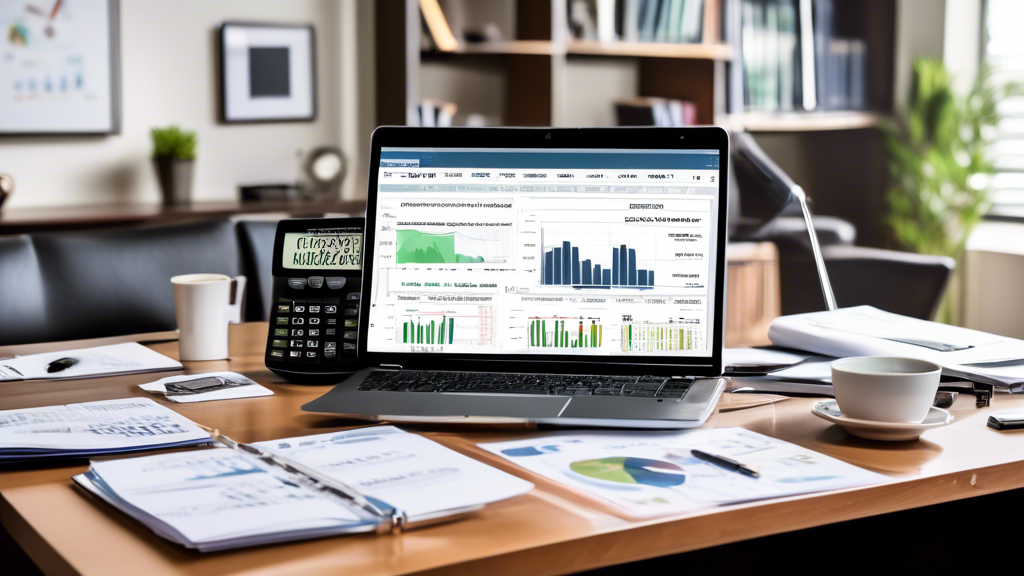In the ever-evolving landscape of financial markets, understanding the methods of trading is crucial for…
Choosing the Right Margin Trading Broker: Key Considerations

In the fast-paced world of financial markets, margin trading brokers play a pivotal role in enabling traders to leverage their positions and maximize potential returns. A margin trading broker acts as an intermediary that provides the necessary capital to trade on margin, allowing traders to open positions larger than their actual account balance. This leverage can amplify profits, but it also brings increased risks, making the choice of broker critically important. Selecting the right margin trading broker is a fundamental step in crafting successful trading strategies, as the broker you choose will impact not only your trading costs but also your overall trading experience and security.
This article delves into key considerations for choosing the right margin trading broker, beginning with a detailed examination of broker fees and costs. Understanding various fee structures, such as commissions, spreads, and overnight fees, is essential for evaluating which broker can offer the most cost-effective services. We provide practical tips on comparing costs across different brokers to find a budget-friendly option and highlight potential hidden fees that traders should be aware of to avoid unexpected costs.
Next, we explore the essential features of a trading platform and tools provided by brokers. The trading platform is the primary tool that traders use to execute trades, analyze market data, and manage their accounts. Therefore, it’s crucial to choose a broker that offers a robust, user-friendly platform equipped with key features like advanced charting tools, mobile access, and trading bots. We encourage readers to take advantage of demo accounts to trial a broker’s platform before making any commitments, ensuring that it meets their trading needs effectively.
The article also covers evaluating a broker’s reputation and security measures. The broker’s reputation can provide insights into the reliability and quality of their services, and it is advisable to research reviews and testimonials from other traders. Regulatory compliance is another critical factor, as working with a broker that adheres to financial regulations ensures a higher level of safety and reliability. Lastly, we discuss the importance of security measures to protect traders’ data and investments, emphasizing protocols that should be in place to ensure secure trading environments.
Choosing the right margin trading broker is a multifaceted decision that requires careful consideration of fees, platforms, reputation, and security. By understanding these aspects, traders can make informed decisions and choose a broker that best aligns with their trading goals and strategies. For more insights and helpful resources on brokerage selections, the following links might be useful:
– [Investopedia’s Guide to Choosing an Online Broker](https://www.investopedia.com/articles/investing/111114/choosing-right-online-broker.asp)
– [NerdWallet’s Best Brokers for Beginners](https://www.nerdwallet.com/best/investing/online-brokers-for-beginners)
– [FCA’s Register to Check Broker Regulations](https://register.fca.org.uk/s/)
| Margin Trading Brokers: An In-depth Exploration |
|---|
Definition and Overview: Margin Trading Brokers
A margin trading broker is an intermediary that facilitates trading by offering leverage, allowing traders to borrow money to trade larger positions than their capital would normally allow. This leverage can amplify both gains and losses, making the choice of a broker critical to manage potential risks and optimize returns.
The primary functions of a margin trading broker include:
- Providing Leverage: Offering traders increased purchasing power by lending funds for trades.
- Executing Trades: Implementing buy and sell orders on behalf of traders.
- Offering Trading Platforms: Supplying the software tools and platforms necessary for trading.
- Account Management: Handling the administrative aspects of trading accounts, such as initial margin payouts and maintaining margin requirements.
For a more detailed understanding, visit Investopedia’s Margin Trading Guide.
Importance of Choosing the Right Broker
Selecting the appropriate margin trading broker is a fundamental step in developing a successful trading strategy. Here’s why it’s crucial:
- Financial Stability: The right broker ensures that your funds are safe and accessible, minimizing the risk of broker insolvency.
- Efficient Execution: A reputable broker provides fast and accurate trade executions, reducing the risk of slippage and missed opportunities.
- Cost Management: Different brokers have varying fee structures, directly affecting your profitability. Choosing a cost-efficient broker can substantially impact your bottom line.
- Advanced Tools and Features: The right broker offers a comprehensive suite of tools and resources to enhance your trading efficiency and decision-making process.
Neglecting the choice of a broker can lead to:
- Excessive trading costs that erode profits
- Inadequate tools that hinder effective trading strategies
- Poor customer support and security failures leading to potential losses
Overview of Topics Covered
To help traders make an informed decision, this article will delve into the following key considerations:
- Evaluating Broker Fees and Costs: We will explore the various fee structures and how to compare costs across brokers.
- Assessing Broker Platform and Tools: We’ll discuss the importance of robust platforms and the essential features they should offer.
- Evaluating Broker Reputation and Security: This section will cover the importance of researching broker reputation, regulatory compliance, and the security measures that should be in place.
By the end of this article, readers will have a comprehensive understanding of how to choose a margin trading broker that aligns with their trading goals and risk tolerance.
For additional reading on choosing the right broker, read more on NASDAQ.

| Evaluating Broker Fees and Costs | |
|---|---|
| Understanding Fee Structures | Exploring different types of fees and how they affect your trading. |
| Comparing Costs Across Brokers | Strategies for finding a cost-effective margin trading broker. |
| Hidden Fees to Watch For | Recognizing and avoiding unexpected fees in trading. |
Understanding Fee Structures
Choosing the right margin trading broker can significantly affect your profitability, and a critical aspect of this is understanding the fee structures involved. Brokers usually charge several types of fees, including but not limited to:
- Commission Fees: A fixed or variable charge for trading transactions.
- Spreads: The difference between the bid and ask price, which brokers may widen to increase their earnings.
- Overnight Fees: Charges applicable for positions held overnight.
Each broker has unique fee structures, which can either be a combination or a single type. Understanding these will help you evaluate which broker provides the most value for your trading strategy.
Comparing Costs Across Brokers
When assessing the cost-effectiveness of a margin trading broker, consider these practical tips for comparison:
- Gather Information: Review broker websites and forums for detailed fee information.
- Use Comparison Tools: Financial websites often have tools that allow you to compare fees between different brokers effortlessly. Investopedia is one such resource.
- Calculate Potential Costs: Utilize spreadsheets or financial software to simulate potential costs over a variety of trade scenarios to make well-informed decisions.
- Seek Client Testimonials: Past clients can offer insight into the general expenses faced during their trading with a specific broker.
Comparing these costs can help you identify a broker whose fee structure aligns with your budgetary needs.
Hidden Fees to Watch For
Besides the obvious fees, some margin trading brokers might apply less-transparent charges. It’s crucial to ask questions and read the fine print to understand potential hidden fees like:
- Withdrawal Fees: Charges for transferring funds out of your trading account.
- Inactivity Fees: Fees that brokers may levy if you do not trade for a certain period.
- Account Maintenance Fees: Regular fees that could be charged annually or monthly to maintain your account.
- Data Feed Fees: These can apply if a trader requests real-time or specific market data.
By being aware of these additional charges, you can better evaluate a broker’s overall cost and avoid unexpected reductions in your trading capital.
In summary, understanding the complete spectrum of fees is crucial when selecting a margin trading broker. A focused evaluation of these costs will enhance your ability to make strategic and financially prudent decisions in your trading journey. Remember to always read the full terms and conditions to ensure you are not caught off-guard by any charges.
Note: The list of fees is not exhaustive, and rates or conditions might change depending on regulatory changes or broker’s updated policies.

Assessing Broker Platform and Tools
Importance of a Robust Trading Platform
When selecting a margin trading broker, one of the most crucial aspects to consider is the robustness of their trading platform. A user-friendly and reliable platform is not just about aesthetics; it significantly impacts your trading success. An intuitive interface, fast execution times, and seamless operation can mean the difference between capitalizing on a market opportunity or missing it entirely.
Reliability is paramount, especially in volatile markets where split-second decisions matter. A platform that frequently experiences downtime or sluggish response times can hinder your ability to execute trades efficiently. Therefore, ensure your chosen broker offers a platform that meets your speed and accessibility needs, aligning with your trading strategies and goals.
Key Features and Tools to Look For
A margin trading platform should offer a range of essential features and tools that enhance your trading experience and performance. Here are key elements to prioritize:
- Advanced Charting Tools: Comprehensive charting features help analyze price movements and patterns for informed decision-making. Look for platforms that offer various chart types, technical indicators, and customization options.
- Mobile Access: The ability to trade on the go with a mobile app is increasingly important. A robust mobile platform ensures you can monitor positions and execute trades anytime, anywhere.
- Automated Trading Bots: Traders looking to streamline their strategies should consider platforms that support trading bots. These bots can automate trades based on pre-set criteria, helping exploit opportunities round the clock.
- Risk Management Tools: Features like stop-loss orders, margin alerts, and limit orders are essential for managing potential risks and protecting your investments.
- News and Research: Integrated news feeds and research tools can provide up-to-the-minute information to keep you informed about market developments impacting your trades.
These features not only aid in strategic execution but also enhance your overall trading efficiency and experience.
Platform Trial and Testing
Before committing to a margin trading broker, it is prudent to thoroughly test their platform. Most brokers offer demo accounts, a valuable resource for assessing the platform’s features and usability without financial risk. Here’s how you can leverage demo accounts:
| Demo Account Benefits | Action Steps |
|---|---|
| Risk-Free Exploration: Allows you to explore the platform’s interface and functionalities without using real money. | Sign up for a demo account and navigate through different sections to evaluate usability and design. |
| Testing Strategies: Simulate trading strategies to understand how they perform in a risk-free environment. | Implement and refine various trading strategies, experimenting with features and tools provided by the platform. |
| Assessing Execution Speeds: Test the simulation of trade execution to gauge speed and reliability. | Execute trades in the demo mode to determine if the platform meets your execution speed expectations. |
Once satisfied with the demo experience, you can proceed with greater confidence, knowing you have thoroughly vetted the platform’s capabilities.
By focusing on a broker’s platform and tools, you set the foundation for a successful margin trading endeavor. Prioritize these elements as you evaluate options, ensuring your choice provides the necessary support for your trading style and objectives. For further guidance on selecting a broker, consider checking out Investopedia’s guide on finding the right broker.

Evaluating Broker Reputation and Security
Research Broker Reputation
When choosing a margin trading broker, it’s crucial to thoroughly investigate its reputation. Leveraging online resources is a practical approach for this task. Begin by exploring Trustpilot or Forex Factory for reviews that offer insights into user experiences. Additionally, you can search for forums and discussion groups where traders share their personal experiences with different brokers. Look for consistently positive feedback focused on customer service, ease of withdrawals, and overall satisfaction. Remember, the reputation of a margin trading broker can significantly impact your trading experience.
Regulatory Compliance
Another critical factor is ensuring the broker is compliant with financial regulations. Regulatory bodies, such as the U.S. Securities and Exchange Commission (SEC), Financial Conduct Authority (FCA) in the UK, and the Australian Securities and Investments Commission (ASIC), oversee financial organizations to maintain integrity and fairness in the marketplace. Here’s why regulatory compliance is essential:
- Safety of Funds: Regulated brokers are required to segregate client funds from company funds, reducing the risk of loss in case of the broker’s insolvency.
- Transparent Practices: Regulatory bodies mandate adherence to ethical standards, including honest marketing and reporting practices.
- Dispute Resolution: If conflicts arise, working with a regulated broker provides avenues for resolution through governing bodies.
Please ensure the margin trading broker you choose displays its regulatory status clearly on its website, often found in the footer or the about section.
Security Measures
In the digital age, security is paramount. Protecting your financial and personal information should be a top priority, so a trustworthy margin trading broker must implement robust security measures. These include:
- Encryption: Ensure the broker employs SSL encryption to protect data during transmission.
- Two-Factor Authentication (2FA): A necessary feature that provides an additional layer of security by requiring two forms of verification before account access.
- Firewalls and Anti-Phishing Measures: These systems prevent unauthorized access and detect malicious activities.
When selecting a margin trading broker, inquire about their specific security protocols and how they align with industry standards. Look for brokers that openly communicate their cybersecurity practices to build trust with their clientele.
By focusing on a broker’s reputation, regulatory compliance, and security measures, you’ll be well on your way to making an informed decision that safeguards your trading activities.
In conclusion, selecting the right margin trading broker is a pivotal decision that can significantly influence your trading journey and overall success. Understanding the intricacies of margin trading and the role of brokers in the financial market sets the foundation for making informed decisions. As highlighted, it is crucial to consider several key factors when choosing a broker to ensure that your trading experiences are both fruitful and secure.
Firstly, evaluating broker fees and costs is an essential step. By understanding various fee structures such as commissions, spreads, and overnight fees, you can make cost-effective choices. It’s important to thoroughly compare these fees across different brokers and remain vigilant against hidden charges that could erode your profits.
Secondly, the choice of a trading platform and its tools plays a fundamental role in trading performance. A user-friendly and reliable platform can enhance your trading efficiency, making features like charting tools, mobile access, and trading bots indispensable. Taking advantage of demo accounts offered by brokers can provide valuable insights and help you assess whether a platform meets your needs before you fully commit.
Equally important is evaluating a broker’s reputation and security measures. Conducting thorough research into reviews and testimonials from other traders can offer an unbiased perspective on the broker’s reputation. Ensuring that the broker complies with financial regulations guarantees a degree of safety and reliability. Additionally, robust security measures are non-negotiable, as they protect both your data and investments from potential threats.
In essence, selecting a margin trading broker is not just about finding the cheapest option or the platform with the most features. It’s about balancing costs, usability, reputation, and security to suit your specific trading needs. A considered approach to choosing your broker will lay a strong foundation for successful margin trading and pave the way for achieving your financial goals. For further insights and detailed guides on choosing the right broker, consider exploring reputable financial websites and forums where experienced traders share their perspectives and experiences.





